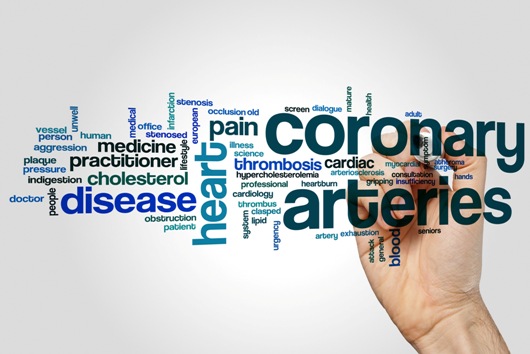Keep the Beat Going!
 February is National Heart Month and a good reminder to embrace best practices for a healthy heart. Exercise, diet and genetics all play an important part, and while we can control our diet and exercise, our genetics are predetermined.
February is National Heart Month and a good reminder to embrace best practices for a healthy heart. Exercise, diet and genetics all play an important part, and while we can control our diet and exercise, our genetics are predetermined.
Coronary artery disease results in damage to the arteries primarily due to plaque and inflammation. Plaque deposits in and on the walls of coronary arteries can restrict the flow of oxygen-rich blood to the muscles of the heart. Lifestyle changes, or, if needed, medication, can reduce the risk of plaque accumulation and help prevent a heart attack or other heart problems.
One of the ways to identify plaque buildup in the arteries is a coronary calcium scoring test. This provides pictures of your heart that can enable your doctor to detect and measure calcium-containing plaque in the arteries. If calcium buildup is discovered, there already is some stiffening and narrowing of the arteries which is called atherosclerosis. Plaque can develop in various arteries and differs from person to person. Other areas for plaque development are the brain, pelvis, legs, arms or kidneys.
The Medical Center is offering coronary calcium scoring during the month of February for a discounted fee of $50 per person.
“Calcium scoring is widely available and is here at the Medical Center as a reproducible and consistent assessment for determining risk for major cardiovascular outcomes,” Medical Center Physician Dr. Mara Cakans said. “We use this in practice to help plan primary interventions such as statins and aspirin. This test can be done in as little as 15 minutes and uses low radiation without the use of contrast agents.”
Your primary care provider can determine if this test is appropriate for you. Some insurance companies may cover this test if your medical history indicates a diagnosis or you fall into certain risk categories.
According to the American Heart Association, “Smoking has a big role in the progression of atherosclerosis in the aorta (the body’s main artery), coronary arteries and arteries in the legs. Smoking makes fatty deposits more likely to form and it accelerates the growth of plaque.”
Please contact us for more information about calcium scoring or to schedule an appointment.
Mark your calendar: The Parkinson’s support group will meet at 3 p.m. Thursday, Feb. 21, in the Medical Center conference room.
Patients: It’s still early in the new year. If you haven’t done so, please bring your new Medicare card with you on your next appointment.
